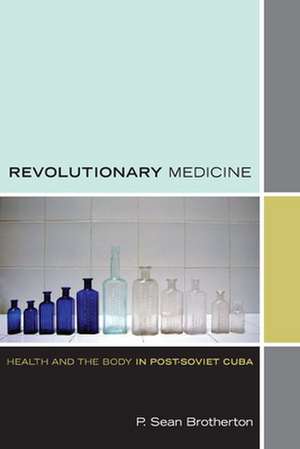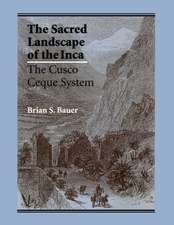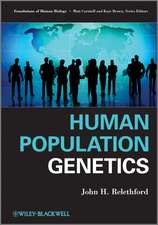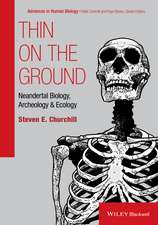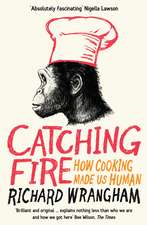Revolutionary Medicine – Health and the Body in Post–Soviet Cuba: Experimental Futures
Autor P. Sean Brothertonen Limba Engleză Paperback – 20 mar 2012
Din seria Experimental Futures
-
 Preț: 194.18 lei
Preț: 194.18 lei -
 Preț: 173.62 lei
Preț: 173.62 lei -
 Preț: 260.69 lei
Preț: 260.69 lei -
 Preț: 174.22 lei
Preț: 174.22 lei -
 Preț: 239.64 lei
Preț: 239.64 lei -
 Preț: 218.52 lei
Preț: 218.52 lei -
 Preț: 174.27 lei
Preț: 174.27 lei -
 Preț: 192.74 lei
Preț: 192.74 lei - 23%
 Preț: 567.41 lei
Preț: 567.41 lei -
 Preț: 173.99 lei
Preț: 173.99 lei -
 Preț: 193.98 lei
Preț: 193.98 lei -
 Preț: 193.44 lei
Preț: 193.44 lei -
 Preț: 215.05 lei
Preț: 215.05 lei -
 Preț: 193.27 lei
Preț: 193.27 lei -
 Preț: 252.13 lei
Preț: 252.13 lei -
 Preț: 201.63 lei
Preț: 201.63 lei -
 Preț: 166.55 lei
Preț: 166.55 lei -
 Preț: 219.61 lei
Preț: 219.61 lei -
 Preț: 242.06 lei
Preț: 242.06 lei -
 Preț: 175.65 lei
Preț: 175.65 lei -
 Preț: 175.69 lei
Preț: 175.69 lei -
 Preț: 215.66 lei
Preț: 215.66 lei -
 Preț: 137.50 lei
Preț: 137.50 lei -
 Preț: 264.26 lei
Preț: 264.26 lei -
 Preț: 261.38 lei
Preț: 261.38 lei -
 Preț: 306.99 lei
Preț: 306.99 lei -
 Preț: 239.38 lei
Preț: 239.38 lei -
 Preț: 259.42 lei
Preț: 259.42 lei -
 Preț: 306.00 lei
Preț: 306.00 lei -
 Preț: 214.21 lei
Preț: 214.21 lei -
 Preț: 301.97 lei
Preț: 301.97 lei -
 Preț: 220.64 lei
Preț: 220.64 lei -
 Preț: 261.18 lei
Preț: 261.18 lei -
 Preț: 266.18 lei
Preț: 266.18 lei -
 Preț: 304.10 lei
Preț: 304.10 lei -
 Preț: 260.41 lei
Preț: 260.41 lei - 23%
 Preț: 886.19 lei
Preț: 886.19 lei
Preț: 261.38 lei
Nou
Puncte Express: 392
Preț estimativ în valută:
50.02€ • 52.03$ • 41.30£
50.02€ • 52.03$ • 41.30£
Carte tipărită la comandă
Livrare economică 14-28 aprilie
Preluare comenzi: 021 569.72.76
Specificații
ISBN-13: 9780822352051
ISBN-10: 0822352052
Pagini: 288
Ilustrații: 29 illustrations, 3 tables, 2 figures
Dimensiuni: 155 x 226 x 25 mm
Greutate: 0.39 kg
Editura: MD – Duke University Press
Seria Experimental Futures
ISBN-10: 0822352052
Pagini: 288
Ilustrații: 29 illustrations, 3 tables, 2 figures
Dimensiuni: 155 x 226 x 25 mm
Greutate: 0.39 kg
Editura: MD – Duke University Press
Seria Experimental Futures
Recenzii
Revolutionary Medicine is fabulous. In this intelligent, insightful, and nuanced book, P. Sean Brotherton takes health care as a window through which to view and understand the new Cuba, which, as he notes, incorporates elements of the pre-revolutionary period, the Soviet era, and the post-Soviet era. Both substantively and analytically, this is a book of very high quality. Susan Eckstein, author of Back from the Future: Cuba under Castro
Notă biografică
Cuprins
List of Illustrations ix
List of Tables xi
Prologue xiii
Preface. An Ethnography of Contradictions xv
Acknowledgments xxv
Introduction. Bodies in States of Crisis 1
Part I. Biopolitics in the Special Period 13
1. The Biopolitics of Health 15
2. Expanding Therapeutic Itineraries 35
Part II. Socialist Governmentality, Public Health, and Risk 55
3. Medicalized Subjectivities 57
4. Curing the Social Ills of Society 84
5. Preventive Strategies and Productive Bodies 111
Part III. We Have to Think Like Capitalists but Continue Being Socialists 145
6. Turismo y Salud, S.A.: The Rise of Socialist Entrepreneurs 147
7. My Doctor Keeps the Lights On 169
Conclusion. Bodies Entangled in History 182
Coda 191
Notes 193
Bibliography 219
Index 245
List of Tables xi
Prologue xiii
Preface. An Ethnography of Contradictions xv
Acknowledgments xxv
Introduction. Bodies in States of Crisis 1
Part I. Biopolitics in the Special Period 13
1. The Biopolitics of Health 15
2. Expanding Therapeutic Itineraries 35
Part II. Socialist Governmentality, Public Health, and Risk 55
3. Medicalized Subjectivities 57
4. Curing the Social Ills of Society 84
5. Preventive Strategies and Productive Bodies 111
Part III. We Have to Think Like Capitalists but Continue Being Socialists 145
6. Turismo y Salud, S.A.: The Rise of Socialist Entrepreneurs 147
7. My Doctor Keeps the Lights On 169
Conclusion. Bodies Entangled in History 182
Coda 191
Notes 193
Bibliography 219
Index 245
Descriere
The Cuban revolution made improved health for ordinary Cubans a primary goal of the state and a measure of the revolutions success. From the Special Period forward, there were less resources to provide health care to everyone, but the investment in health on the part of the ordinary citizen remained. Cubans began to seek out other forms of health assistance in the informal economy, or from spiritual or alternative sources. In this fine-grained ethnography of Havana, Brotherton talks to doctors, health care providers, and everyday people, tracing out their complex attitudes toward their bodies, health, and the Cuban state.
